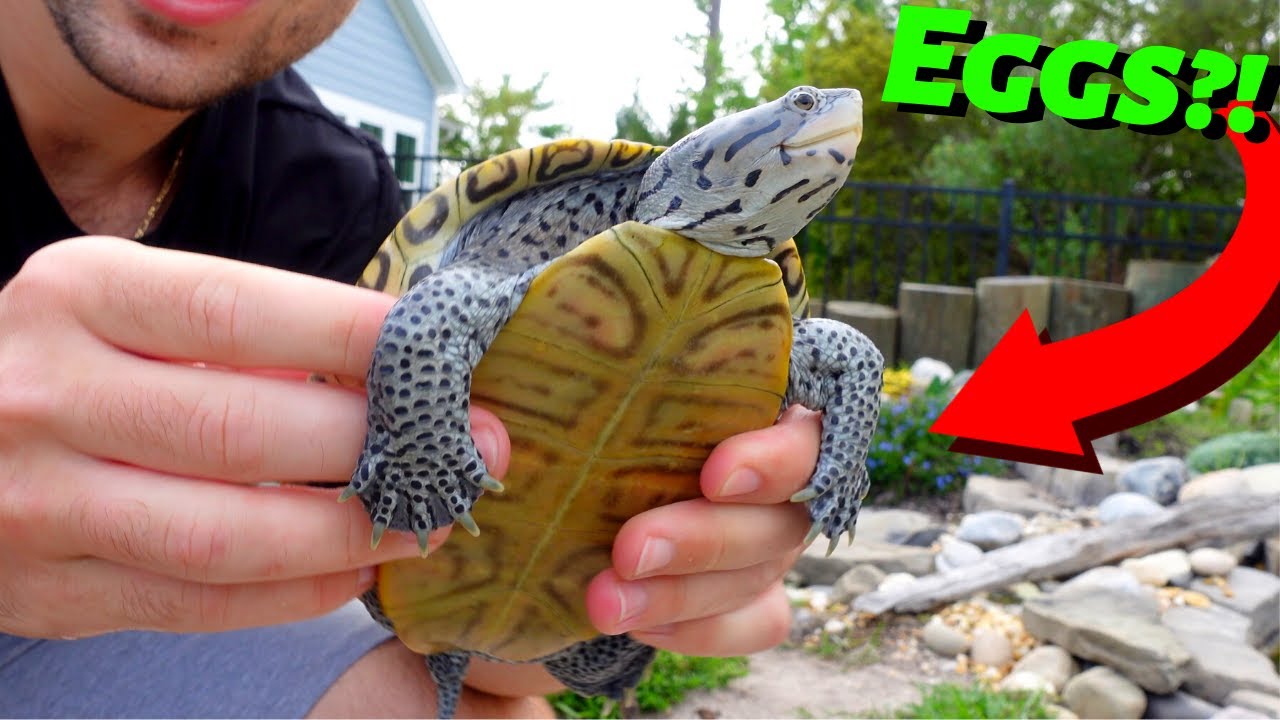To determine if a turtle is pregnant, look for signs such as changes in behavior, increased appetite, and a swollen or distended abdomen. Additionally, a pregnant turtle may also dig or search for a suitable nesting site.
Observing these behaviors can indicate potential pregnancy in turtles. Turtles are fascinating creatures known for their longevity and unique reproductive processes. If you have a pet turtle or encounter one in the wild, it can be intriguing to learn about their reproductive behaviors.
Understanding how to identify pregnancy in turtles is essential for their care and conservation. By recognizing the signs and symptoms of turtle pregnancy, you can provide the necessary support and create a suitable environment for the expecting mother. This article will explore the various indicators of turtle pregnancy, enabling you to determine if a turtle is pregnant and support its well-being.
Physical Signs
Egg Laying
Female turtles may lay eggs even without mating, though the eggs won’t be fertilized.
Swollen Belly
A pregnant turtle’s abdomen might appear enlarged due to the growing eggs inside.
Changes In Appetite
Pregnant turtles might exhibit increased or decreased appetite behaviors.

Behavioral Signs
Turtles, like many other animals, display behavioral changes when pregnant. Understanding these signs is crucial for turtle owners to provide the necessary care and support during this delicate period. Here are the behavioral signs that can indicate a turtle is pregnant:
Nesting Behaviors
Nesting behaviors are often observed in pregnant turtles as they prepare for egg-laying. This may involve the turtle searching for a suitable location to lay her eggs, such as digging in the substrate or exhibiting repetitive movements to create a nest. Owners should provide a nesting area with suitable substrate to accommodate this natural behavior.
Increased Aggression
Pregnant turtles may display increased aggression, especially towards tank mates or even their human caregivers. This behavior is attributed to the hormonal changes during pregnancy. It’s essential for owners to monitor and handle pregnant turtles with caution to avoid any potential aggression-related incidents.
Restlessness
Pregnant turtles may exhibit restlessness, appearing unsettled or constantly moving around their environment. This behavior can be a sign of discomfort or the nesting instinct. Owners should ensure the turtle has a calm, secure environment to minimize stress during this critical stage.
Veterinary Diagnosis
To determine if a turtle is pregnant, a veterinary diagnosis involves physical examination and ultrasound imaging. The veterinarian will check for egg retention and observe any changes in behavior or appetite that may indicate pregnancy. Ultrasound can confirm the presence of eggs inside the turtle.

Importance Of Determining Pregnancy
Conservation Efforts
Determining if a turtle is pregnant aids in conservation efforts.
Proper Care
Knowing if a turtle is pregnant allows for providing proper care.
Preparation For Hatchlings
Identifying pregnancy helps in preparing for the arrival of hatchlings.

Conclusion
Determining if a turtle is pregnant requires keen observation and understanding of their behavior. By noticing changes in eating habits and nesting behavior, you can identify potential signs of pregnancy. Remember, consulting a vet is essential for accurate confirmation and proper care.
Stay informed and proactive for the well-being of your turtle.






Leave a Reply